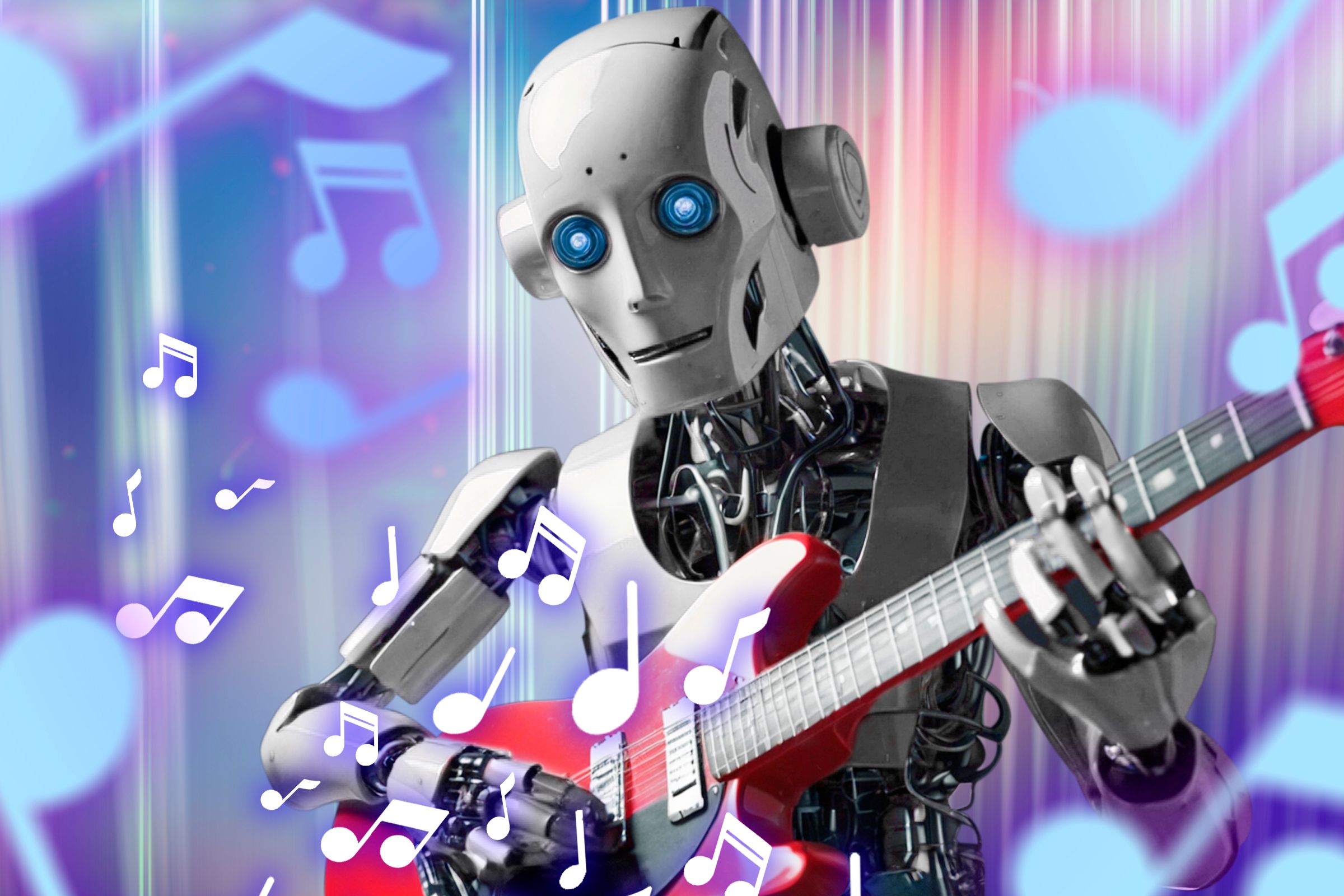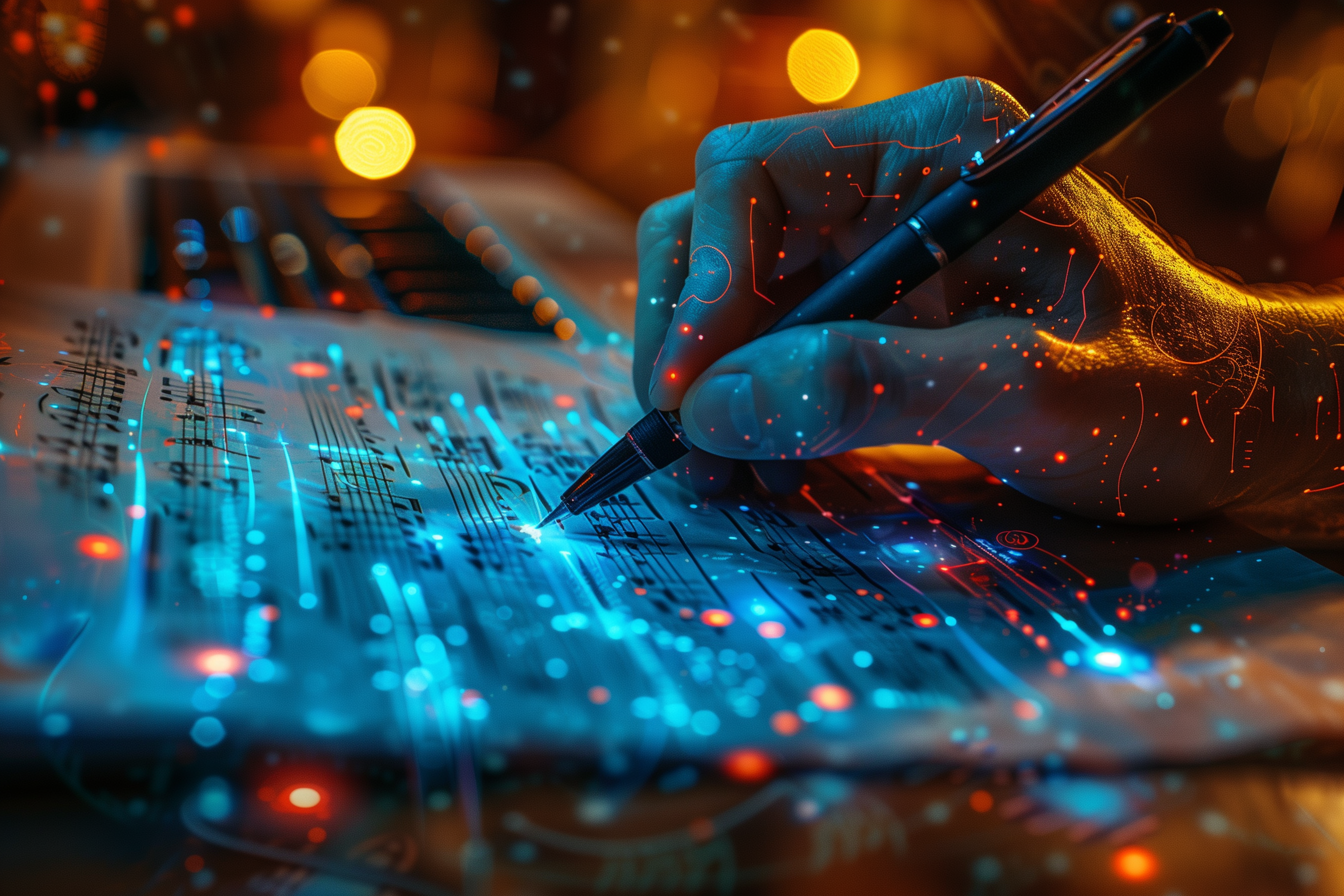Key Takeaways
- AI-generated song covers have vastly improved, now sounding like real artists, thanks to better AI music generators.
- AI covers allow for reimagining songs by different artists and mixing music genres that would never normally intersect.
- People enjoy AI covers for the novelty of hearing fictional characters sing popular songs, but ethical concerns remain about consent and copyright.
AI-generated song covers are everywhere on YouTube, with many of them registering millions of views. But why exactly are they so popular? I did some digging and here’s what I found out.
AI Songs Are So Good Now
The first time I heard an AI-generated song was in early 2023, and though it had promise, it wasn’t very good. The instrumentals were decent, but the AI did a terrible job of enunciating its words. You could just tell it was AI-generated, and there was no chance it would ever make it onto any of my playlists.
I think I’d been carrying that idea of AI-generated songs in my head all this time, which was why I was so shocked when I heard my first AI cover on YouTube—a rendition of Nothing’s Gonna Change My Love For You by AI Justin Beiber.
Unlike what I was expecting, the AI actually sounded like Justin Bieber and even sang in his trademark style. I doubt I could have picked up on it if I didn’t already know AI was involved. For all intents and purposes, Justin Bieber might as well have covered that song.
The massive improvement is thanks to the many different AI Music Generators that have popped up over the last year. Better models allow creators to make more accurate sounding covers, which translates to increased views on YouTube.
AI Covers Let You Hear Your Favorite Tracks Sung by Different Artists
One of my all-time favorite songs is Bad by Michael Jackson—but not the original rendition. The version I fell in love with was a cover by Billie Eilish, and ever since I first heard it, it’s been stuck in my head. Now I can barely remember what the original even sounds like.
I’m sure you’ve had a similar experience or at least imagined how amazing a song would sound with a different artist’s voice on it.
That’s where AI song covers come in. They let you scratch that “what if this artist sang that song” itch. Want to hear Drake cover Kendrick Lamar’s Not Like Us? Or Lana Del Rey cover Adele’s Skyfall? It probably exists on YouTube.
AI covers also bring together music worlds that would normally never mix. For example, I listen to lots of Afrobeats and K-pop, and I’ve often thought it would be cool if my favorite artists from both genres could cover each other’s songs.
That used to feel impossible because of the huge differences in style and language, but now, thanks to AI, it’s not so far-fetched. There are already tons of AI covers with popular artists singing in completely different languages and styles than they ever would in real life.
Enjoy “New” Music From Long Gone Musicians
Another big reason people are drawn to AI covers is the chance to hear musicians who have passed away or retired in a totally new way. Artists like Frank Sinatra, Freddie Mercury, and Michael Jackson are fan favorites for these covers.
These legends left such a lasting impact that people have been imitating their style for years, but AI takes it to a whole new level. It lets you imagine what a song would sound like if your favorite old-school artist was performing it. It’s also pretty fascinating to hear modern tracks reworked in the style of older musicians—even though it stirs up some controversy.
Entertain Yourself With Fictional Characters Singing Real Songs
The final reason why I think people love AI song covers so much is simple: they’re just fun. Many of these covers have fictional characters stepping up to the mic to deliver their take on popular songs, and it could not be more hilarious.
Want to hear Plankton from SpongeBob belting out a gritty cover of Måneskin’s Beggin’? Or the Family Guy characters do their take on the Backstreet Boys’ I Want It That Way? It’s all out there, and it’s wildly entertaining to hear these cartoon voices we’ve grown up with suddenly belting out popular songs.
Is It Okay to Listen to AI Song Covers?
The sticking point when it comes to AI song covers is whether it’s okay to make and listen to them. It might feel like harmless fun, but there are plenty of ethical issues to think about.
For one, AI covers are basically deepfakes of someone’s voice, which feels like a violation—especially if you’re creating them without the person’s consent. It’s even more complicated when it comes to artists who’ve passed away, as they can’t have a say in how their voice is used. Though, of course, human impersonators have been doing this forever.
On top of that, there’s the fact that a musician’s voice and style are the tools of their trade, one they sometimes spend years perfecting. Mimicking it with AI just feels like stealing without regard for the time and effort it took to develop it. Though “feeling” like stealing, and actual legal theft are not the same thing. This will be an important jobs for the courts in the years ahead.
There’s also the fact that most people who post AI covers on YouTube do not hold the copyright to these songs, and have not obtained permission to do so. Every time someone streams one of these AI covers, it translates to lost revenue for the original artist. When a human artist covers a song, they need to pay royalties to the copyright holder of the song in addition to having the appropriate license.
My take is that AI covers are still too fraught with ethical concerns for me to embrace it wholeheartedly. The technology is cool, and it could have some interesting applications, but until the issues are ironed out, AI Justin Bieber will have to wait.
